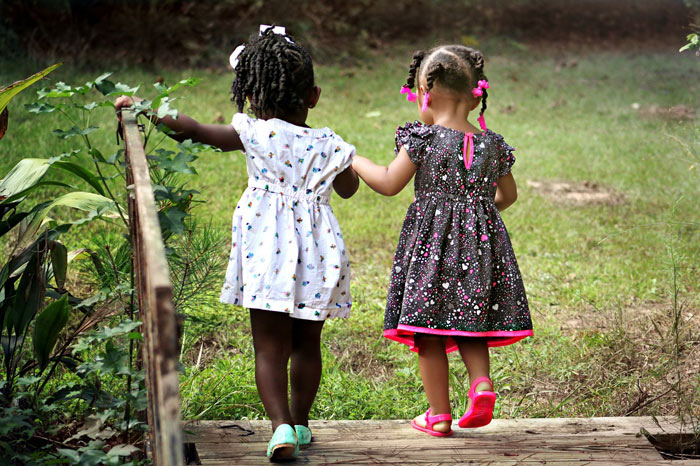How to Make Your Child More Self-Confident
Cultivating confidence in children is probably one of the most important aspects of upbringing. Confident children are much more likely to become successful; they will be able to take control of themselves, their habits and conduct, to cope with difficult situations. Those children who are sure of their abilities are not afraid of new things in their lives, they can face them, tackle them and take pride in their success. If they make mistakes, they don’t allow it to get them down. They keep on trying. High self-esteem works for children in all aspects of their lives: learning at school, playing with peers, coping with tasks at home.
 On the other hand, if self-esteem is not developed, children are prone to hesitating. They doubt whether other kids will accept them into their games, and shy away – or overreact if they are rejected. They find it hard to defend their ground and give in to those who have stronger wills. Finally, they learn not to have a go at things or back down as soon as they feel resistance. Their mistakes make them feel devastated, and they hardly ever succeed even though they have the ability to.
On the other hand, if self-esteem is not developed, children are prone to hesitating. They doubt whether other kids will accept them into their games, and shy away – or overreact if they are rejected. They find it hard to defend their ground and give in to those who have stronger wills. Finally, they learn not to have a go at things or back down as soon as they feel resistance. Their mistakes make them feel devastated, and they hardly ever succeed even though they have the ability to.
Anyway, confidence is a quality that lends itself to developing in all kinds of situations. It is the issue that concerns you, but you are not sure what to begin with? Try the following simple ways to make your kid happier and more self-assured.
Kids must have choices
You can make kids feel as if they were at the helm of their lives by offering them choices (of course, only those of your own selection). When you ask them if they prefer pancakes or eggs for breakfast, they make their choice and thus learn to do it getting ready for making more serious choices in the future.
Let them do what they can themselves
Your kid must keep learning new things. There is plenty around of what’s new. And all these things must be mastered properly, from the ability to control the body while moving to the ability to hold and handle toys and cups. As they feel sure of their prowess, their self-respect increases and they learn faster and develop better agility as they dress, draw or eat.
As you show the kids how to manage, help them and explain
After you have taught them, leave them to their own devices. The child must learn to learn by himself, make his mistakes and see how to correct them. You should only offer them challenges that are neither very difficult nor very easy.
Mind that you are a role model
Every time you set about performing tasks, you show a good example to your kids! Let them see how you cook dinner, shovel the snow away or wash the car; they see that you are making efforts and will try and emulate when performing their everyday tasks.
Forming the appropriate attitude comes in useful
Your child observes how you get down to doing chores – whether you are willing or grumbling, whether you complain and get irritated. As you tackle each issue in earnest and make sure you do everything properly, the kid is sure to take it into account.
Tell him people aren’t perfect
Who will tell the child if not you that nobody can be expected to be perfect – himself included? So mind how you behave when the child botches up – do you encourage him on or discourage?
Channel the kid towards his strong points
You are supposed to know the activities that your kid delights in. They are the spheres which you will want your little one to cultivate. Children will feel fine when they are pursuing something they like and know they are good at it. It does good to their self-respect and results in their behaving better.
Make sure your praise comes from the heart
Children are highly sensitive and can tell sincerity when they hear it. If you shower them with groundless, disingenuous praise, they will know it. So be lavish with the accolade, but take pains to explain what caused your admiration so you don’t sound shallow. Then, mind you don’t praise for results solely or the qualities that your kid already knows he possesses. When singing praise, focus on the attitude, input, and the headway they are making.
Never allow strong criticism
When a child is told what he is, he begins to accept that he really is what he hears. If they receive a lot of heavy slashing, they don’t take it as a negative sort of motivation – they realize they are being trodden down, and it brings down their self-assurance. It isn’t worth your while to criticize your kid. If you are just too angry, stay away for a while until you calm down and are not going to blurt out harsh words. Then, you can like the child but disapprove of some of his actions – see to it that the kid understands you differentiate between him and his behavior.
Find time to enjoy the company of your kid
You want to show them that you appreciate your time together with no other people present. As often as you can, take your child out to have a snack at an eatery or ride somewhere where you won’t be distracted. Now you can discuss all your mutual issues freely, and it will make you feel closer.



